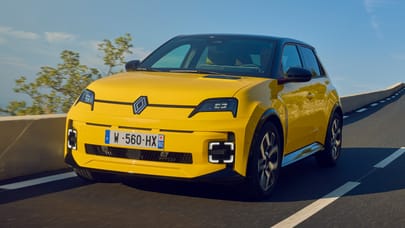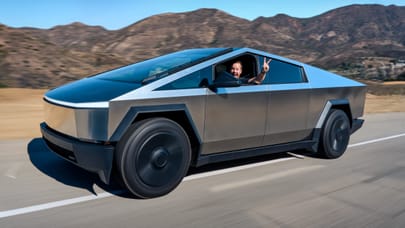
Good stuff
Electric cars get no more approachable, new look's a big improvement, simple trim options
Bad stuff
Bland and uninteresting cabin, firm ride, far from cheap
Overview
What is it?
It’s the artist formerly known as the Vauxhall Corsa-e, now going by Vauxhall Corsa Electric. In case you hadn’t guessed yet, it’s the fully electric version of one of Britain's best-selling cars, and it's about as straightforward an electric car as you’re likely to get.
Only, we need to talk about the looks, because the Corsa has recently been treated to a not-so-subtle facelift. Yep, it becomes the final model in Vauxhall’s passenger car range to adopt the brand’s new design language, most notably that 'Vizor' front end, and it looks all the better for it, we reckon.
Additional exterior changes include the Corsa lettering spelled out across the rear bootlid, LED headlights, and redesigned alloy wheels, while the cabin has also undergone a (disappointingly) minor refresh. Underneath it gets an additional bigger motor/battery pairing, as per the Peugeot e-208.
Go on then, what are the powertrain options?
Well, the previous 134bhp electric motor and 50kW battery pairing remains, but it’s been joined by a new 154bhp motor and 51kWh battery combo that’s ambitiously been titled ‘Long Range’. The former offers a range of 222 miles, the latter 246 miles.
This is where the Corsa Electric jumps starkly ahead of its more vivaciously designed rivals. Its range blitzes the Fiat 500, Mini Electric and Honda e, and there are lots of thoughtful touches to make sure this is an EV you buy to own, not to make a statement.
Things like an 11kW on-board charger as standard, allowing for a full charge from empty in five hours and 15 minutes, or seven and a half hours using a 7kW home wallbox. A typical flat to 80 per cent on a 100kW rapid charger takes 30 minutes.
So what’s it like to drive?
There are surely few easier introductions to electric cars than this, primarily because it’s so similar to the ICE variant. Simply press the start button, pop it into D (or B, for extra regen) and you’re good to go. It really is as easy as that.
It’s all very conventional to drive too, with its nicely weighted steering, smooth acceleration/braking, and generally pleasing road manners. Even if it does occasionally get slightly unsettled. Click through to the Driving tab for the full lowdown.
The biggest letdown is arguably the cabin itself, which just doesn’t live up to the exterior’s makeover. OK, it gets a slightly redesigned steering wheel and a bigger screen, but overall it's still pretty miserable inside.
Which feels like a missed opportunity, particularly when you compare it to the Peugeot e-208. There’s none of the glitz and glamour of that here, and while it all feels well built and there's common sense galore, we were hoping for a little more... imagination.
How much does it cost?
Prices start at £32,445, which is pretty eye-watering when you consider that’s almost £13k more than an ICE Corsa. It’s also similarly priced to the (arguably better looking) e-208. Ouch.
Our choice from the range

What's the verdict?
If you’ve been curious about going electric but are a little risk-averse, the Corsa Electric might just be for you. It’s significantly less peacocky than its Honda or Mini rivals, and it’ll go further and has tons more room for people to compensate.
The mid-life facelift undoubtedly improves the exterior looks: this is a very smart-looking supermini. We just wish Vauxhall had paid the same attention to the cabin, which is dull and uninspired by comparison.
And there’s no shying away from the price. £32k - or nearly £40k in top spec - for a Corsa? Vauxhall can bang the drum about the cost of ownership parity with the ICE variant all it likes, but those are steep figures indeed.
The Rivals
Trending this week
- Electric
Top Gear's top 20 electric cars












